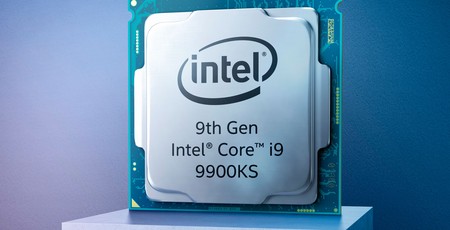
Clock Speeds and Overclocking
There are a few caveats with both stock speed and overclocked operation with the Core i9-9900KS. For starters it seems motherboard manufacturers are dishing out 9900KS-specific BIOS versions that tweak the necessary power settings to get this CPU running as it should at stock speed given a TDP that's 32W higher than the top specification CPU they've had to deal with until now. Luckily, our MSI MEG Z390 Ace had one available on its website, but we've heard reports that the CPU can encounter boosting issues, especially in multi-threaded loads, if not configured properly.
Secondly, another board we've tried, which had a much older BIOS, encountered stability issues at first due to this CPU having a newer R0 stepping, which is known to require BIOS versions newer than early ones released alongside the Z390 chipset. Thankfully, you can boot the PC fine and even get into Windows - more than enough to flash the BIOS - but if you intend to nab the Core i9-9900KS, be very sure to use the latest BIOS for your board and, if possible, one that's 9900KS-specific, as that's likely to avoid issues.
We should also point out that our BIOS saw the CPU sit at 5GHz most of the time, even at idle, so for the moment, there's something of a brute force method going on that will result in higher than average idle and probably load power consumption too.
As far as actual overclocking goes, things were pretty interesting. Sadly, 5.2GHz was out of the question, so as usual those '5.2GHz on air is easy' do not hold up within tameable voltages. Secondly, 5.1GHz was stable without touching anything else, although the vcore did skyrocket to 1.4V when allowing the motherboard to do its thing. We only had a short time to tweak further, but we managed to drop the vcore all the way down to 1.28V - barely any more than our Core i9-9900K needed to hit 5GHz. Here, temperatures hovered in the low 80s under full load, shaving 10°C off the temperature we saw when letting the motherboard deal with things, so some sort of manual vcore intervention is definitely the way to go.
Performance Analysis
While the above antics were a little unexpected, performance was fairly predictable. There were minor gains against the Core i9-9900K in pretty much every test, and the rest were either within the margin of error or could be explained by us using a different BIOS version to that when we tested the older CPU. Adobe Premiere Pro saw a few seconds shaved off the project export time, with Intel regaining the top spot amongst the other mainstream CPUs but only plascing just ahead of the Ryzen 9 3900X. The same AMD CPU was significantly quicker in HandBrake, edging out a 20 percent lead at stock speed, and even the Ryzen 7 3800X was a match for Intel's new flagship despite an identical core and thread count yet much lower frequencies.
PCMark 10's image editing test unsurprisingly saw both eight-core Hyper-Threaded Intel CPUs perform similarly with all cores at 5GHz, with the new kid on the block gaining close to 300 points once overclocked. That's a meagre gain, though, as were those in the previously mentioned tests. The two Intel CPUs were barely distinguishable in Cinebench, with the Ryzen 9 3900X still maintaining its lead in the single- and multi-threaded tests, with around 150 points added to the Core i9-9900K's stock-speed multi-threaded score.
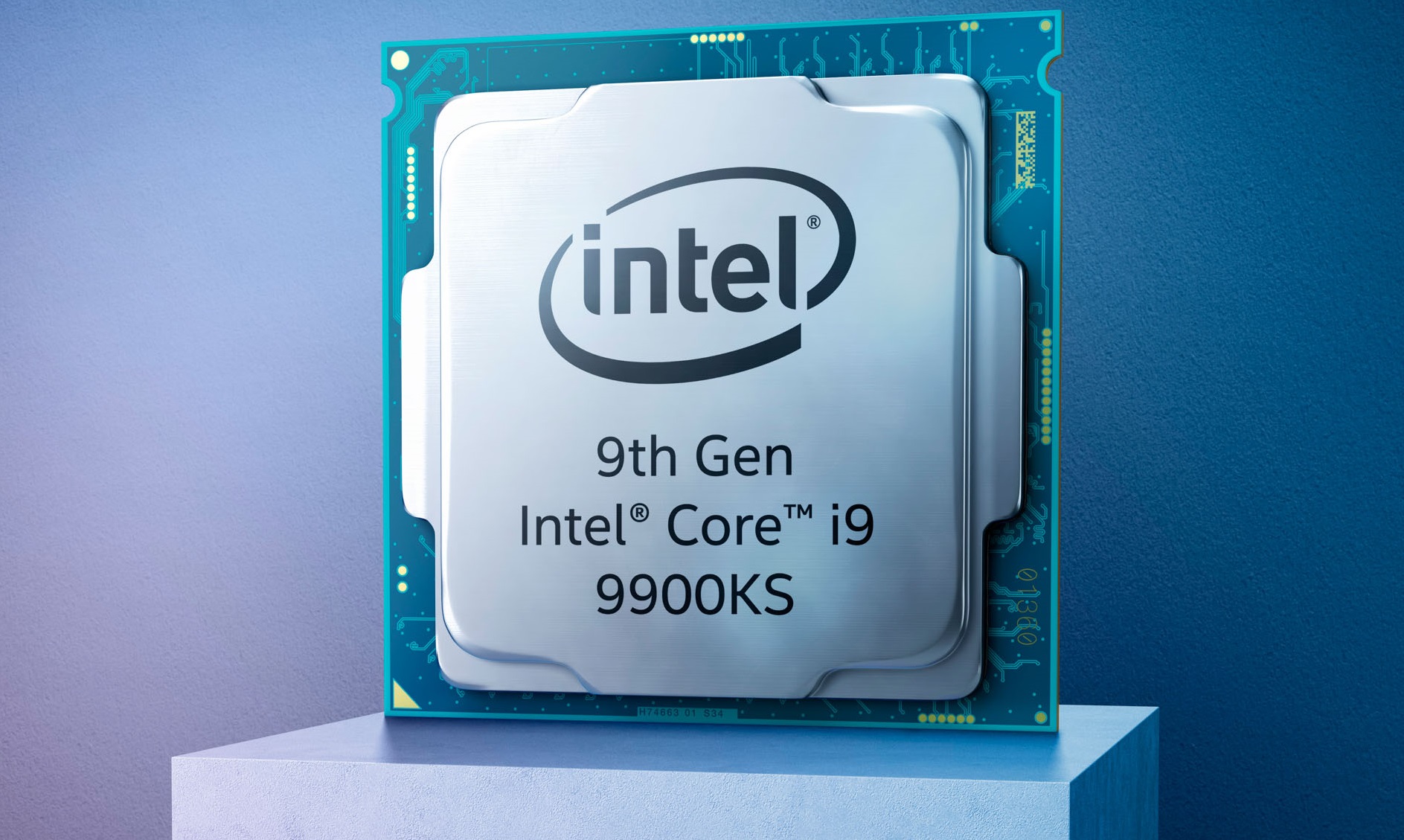
DotA 2 seemed to love the extra frequency of the overclocked Core i9-9900KS, and we have our first CPU that tops 120fps on the 99th percentile minimum frame rate, while at stock speed it hit similar results to the overclocked Core i9-9900K, with both being noticeably faster here than anything from AMD. Far Cry 5 saw less of a difference between the two companies, but Intel still ruled the roost, with the Core i9-9900KS second only to the Core i9-9700K's oddly dominant performance. Civilization VI's AI test saw the Core i9-9900KS sit in a dominant position at both speeds, with a marginal advantage over the overclocked Core i9-9900K, which is interesting. It was a little quicker in Time Spy too, where it was also top dog.
Power consumption was unsurprisingly higher than the Core i9-9900K at stock speed, and our system drew 64W more under load, although we should add that this was with a different BIOS. As for the overclocked results, the Core i9-9900KS actually drew slightly less power compared to the overclocked Core i9-9900K despite a 100MHz higher frequency and similar vcore.
Conclusion
While the Core i9-9900KS is undoubtedly Intel's new mainstream flagship with performance figures to match, the gains from having six more cores hit 5GHz under load as well as increased overclocking headroom (at least from our sample) point at this CPU being exactly what we expected it to be - a trophy product rather than a replacement for the venerable Core i9-9900K. You'll never see performance scale in line with price, but with the Core i9-9900KF being available for $470/£470, the new CPU coming at $570 is questionable to say the least. We're going by this out-of-stock listing (at the time of writing) on Newegg, mind, so it's possible retail pricing will come down when (if?) the CPU becomes more widely available, as the official recommended pricing (per tray for retailers, not for end users) works out to $513 per CPU.
We won't go too much into the AMD versus Intel argument here, because not much has changed. The Ryzen 9 3900X and Ryzen 7 3800X are still much better buys for general-purpose CPUs, and the former is a far better product for the cash if you don't mind losing a few frames per second in the odd game title. It's nice to see a company doing what Intel is doing, but equally, we want to see products like this matched by real innovation, and that's clearly lacking at the moment, at least on the mainstream desktop offerings.
In short, the Core i9-9900KS is probably worth a small amount of extra cash if you're in the market for a Core i9-9900K anyway, but we're far more interested in what lies ahead next month in terms of CPU battles.

MSI MPG Velox 100R Chassis Review
October 14 2021 | 15:04

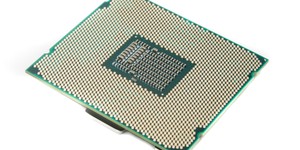
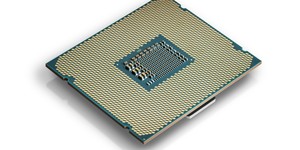
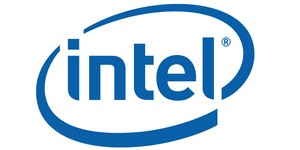




Want to comment? Please log in.